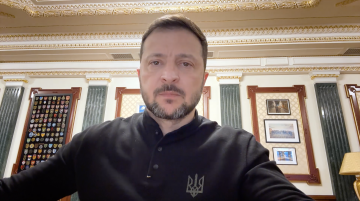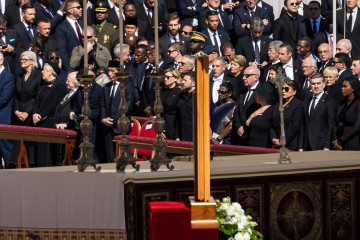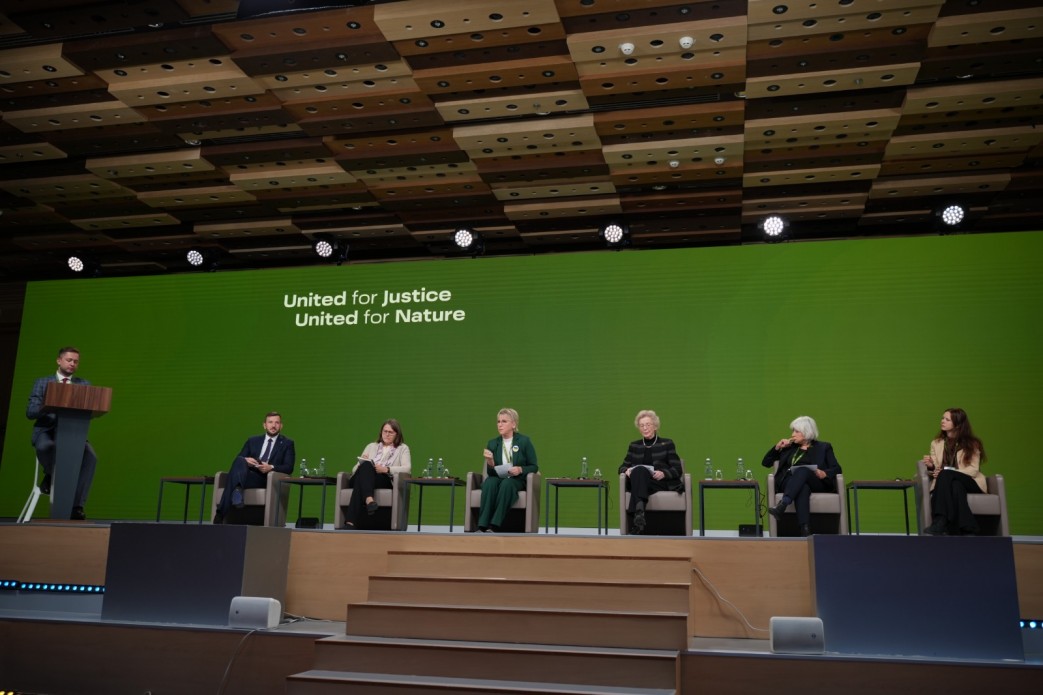Members of the Ukraine War Environmental Consequences Work Group led by Head of the Office of the President of Ukraine Andriy Yermak and former Minister of Foreign Affairs of Sweden Margot Wallström took part in the "United for Justice. United for Nature" conference, which began in Kyiv.
The goal of the event is to draw attention to the destructive consequences of the Russian war in Ukraine for the nature, to discuss approaches and lessons learned over the past 20 years in such situations, and to inform about the development of institutional mechanisms, procedures, and standards that are essential for holding those responsible for environmental damage during wartime.
Participants in the conference included members of the Ukraine War Environmental Consequences Work Group, representatives of the Ukrainian government, European Union institutions, the International Criminal Court, the Atrocity Crimes Advisory Group, leading experts, and others.
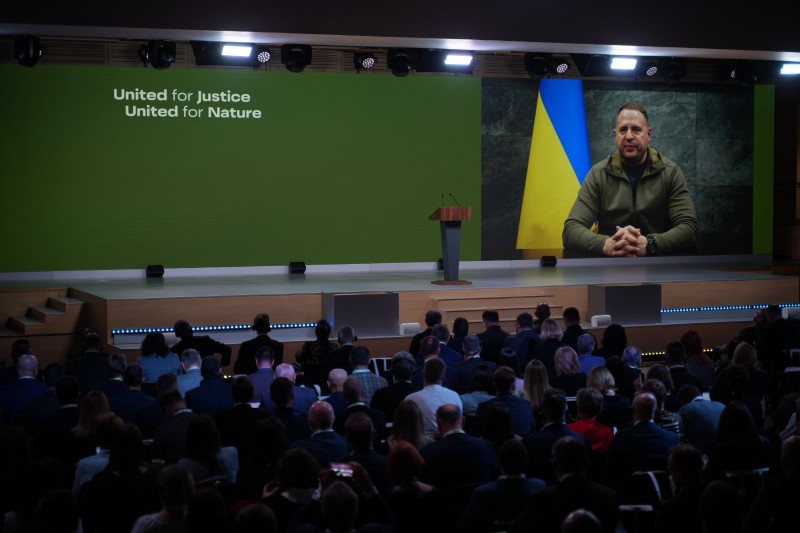 A statement will be adopted based on the outcomes of the dialogue, documenting the main issues, challenges, and prospects.
A statement will be adopted based on the outcomes of the dialogue, documenting the main issues, challenges, and prospects.
In a video message to conference participants, Head of the Office of the President Andriy Yermak emphasized the global consequences of the Russian war for the world's ecosystem and called for considering armed aggression against Ukraine and its impact on the environment in a global context.
"In fact, Russia is not only at war with the Ukrainian state and its people but also with the environment. Nature doesn't recognize human borders. Therefore, crimes committed against it anywhere affect everyone," he said.
Andriy Yermak stated that Ukraine is making every effort to draw the attention of the international community to the harm caused by Russian aggression to the environment. A series of international events dedicated to this issue will take place by the end of the year.
Oleksandr Bevz, an advisor to the Head of the Office of the President, who moderated the first session on "Russian Ecocide in Ukraine. A Danger to the Whole World," noted that most members of the International Work Group are participating in this conference and will share the goals of their activities.
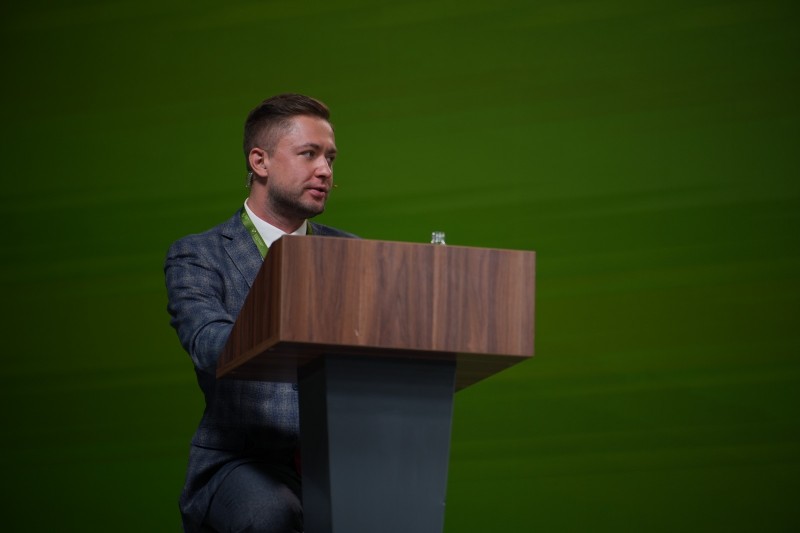 "The Work Group aims to develop a unified approach to assessing the impact of war on the environment, define a framework for fair compensation for environmental damage, and establish principles for environmental restoration," Oleksandr Bevz added.
"The Work Group aims to develop a unified approach to assessing the impact of war on the environment, define a framework for fair compensation for environmental damage, and establish principles for environmental restoration," Oleksandr Bevz added.
Margot Wallström, former Deputy Prime Minister and former Minister of Foreign Affairs of Sweden, emphasized that the International Work Group, which she co-chairs with Andriy Yermak, has three main tasks: assessing the damage already inflicted on the environment in Ukraine, holding those responsible for the losses, and restoring the natural environment and ecosystems after combat operations.
She expressed her belief that the impact of military actions on the environment should be at the center of not only Ukrainian society's attention but the entire world's, as Ukraine is the third-largest grain exporter on the planet, and current events may have economic consequences and even lead to food shortages in vulnerable countries.
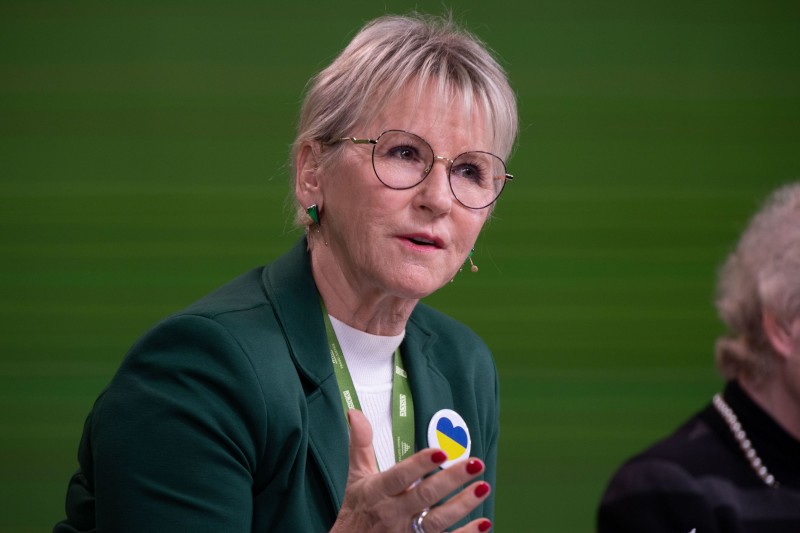 "The fate of Ukraine is our fate as well because you are currently fighting the enemy for the sake of the whole world. It is important to explain this to the world. We understand that nature and peace are interconnected. If you harm one component, the other will inevitably suffer. Protect one component, and you protect the other," Margot Wallström said.
"The fate of Ukraine is our fate as well because you are currently fighting the enemy for the sake of the whole world. It is important to explain this to the world. We understand that nature and peace are interconnected. If you harm one component, the other will inevitably suffer. Protect one component, and you protect the other," Margot Wallström said.
She said that through joint efforts, Ukraine can gain successful experience in overcoming the environmental consequences of war and become an example for others.
Heidi Hautala, Vice President of the European Parliament and former Minister for International Development of Finland, who is also a member of the International Work Group, mentioned that the aspect of environmental protection is important regarding Ukraine's future accession to the EU. Therefore, the European Parliament is ready to serve as a platform for consultations on issues related to achieving peace in Ukraine and, specifically, environmental protection.
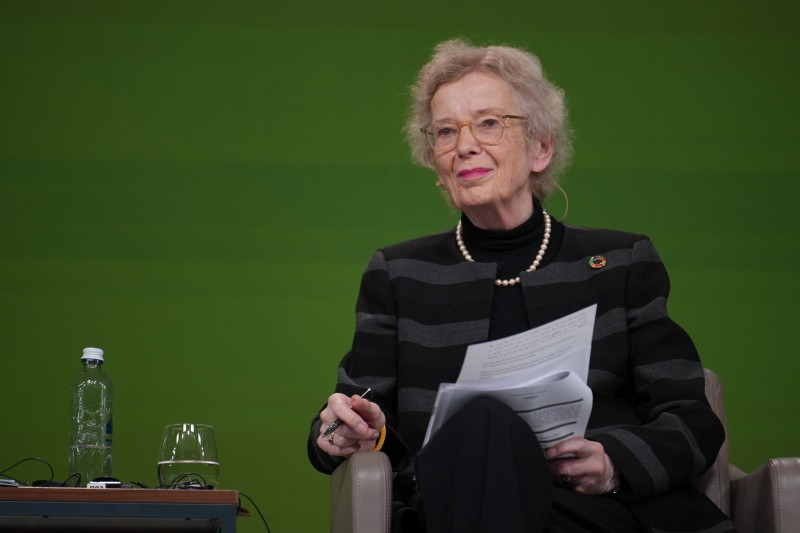 Mary Robinson, Chair of The Elders, former President of Ireland (1990-1997), and former United Nations High Commissioner for Human Rights, said that the proper collection of evidence and documenting crimes committed on the territory of Ukraine will contribute to prosecuting cases related to the crime of aggression.
Mary Robinson, Chair of The Elders, former President of Ireland (1990-1997), and former United Nations High Commissioner for Human Rights, said that the proper collection of evidence and documenting crimes committed on the territory of Ukraine will contribute to prosecuting cases related to the crime of aggression.
"What Russia has done is an attack on our entire planet because nature is our common treasure. Governments of all countries should protect the environment. That's why it would be right to hold Russia accountable," Mary Robinson said.
She said that blowing up the dam at the Kakhovka hydroelectric power plant was the largest but not the only environmental crime committed by Russia in Ukraine. Mary Robinson also supported the idea of creating a special international tribunal to address the crime of aggression against Ukraine in a format that would allow for holding the highest political leadership of Russia criminally responsible.
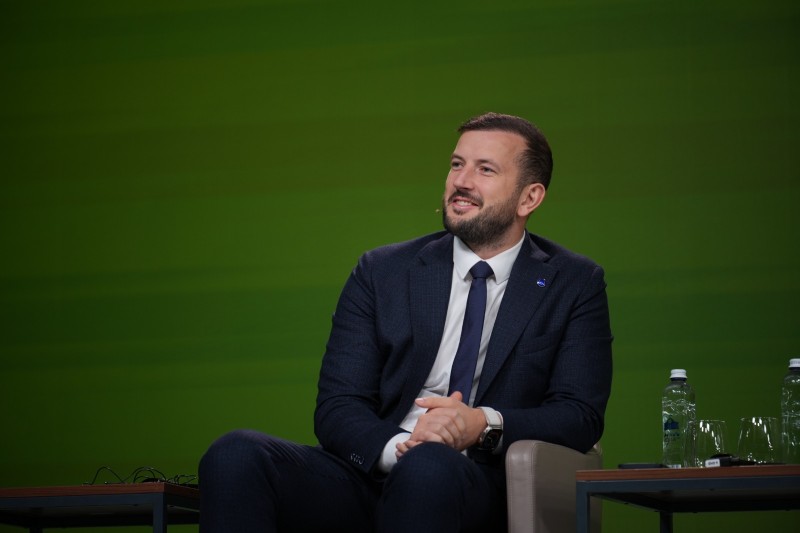 Virginijus Sinkevičius, the European Commissioner for Environment, Oceans, and Fisheries, said that the efforts to hold those responsible for committing environmental crimes should include, among other things, compensation payments and the subsequent restoration of Ukraine's ecosystems.
Virginijus Sinkevičius, the European Commissioner for Environment, Oceans, and Fisheries, said that the efforts to hold those responsible for committing environmental crimes should include, among other things, compensation payments and the subsequent restoration of Ukraine's ecosystems.
"I believe the damages are immense, and they should not be covered by Ukraine or the European Union but by Russia. Our goal is also to ensure that Ukraine rebuilds and becomes even better, and we will also become better," the EU Commissioner said.
After the panel discussion, members of the International Work Group held a meeting on the sidelines of the conference to discuss further steps and paths of cooperation. Minister of Environmental Protection and Natural Resources of Ukraine Ruslan Strilets and Prosecutor General Andriy Kostin also joined the meeting.
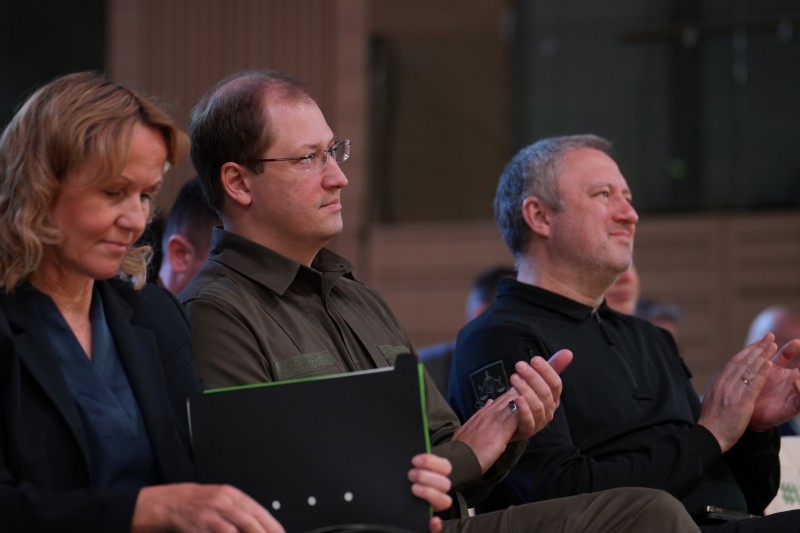 Ruslan Strilets emphasized the importance of creating a Climate Office in Kyiv, which will be responsible for building Ukraine's climate architecture. He said that in 2024, a pilot project to implement a greenhouse gas emissions trading system is planned. The minister highlighted that this system will generate additional funds for transforming the environmental system in Ukraine.
Ruslan Strilets emphasized the importance of creating a Climate Office in Kyiv, which will be responsible for building Ukraine's climate architecture. He said that in 2024, a pilot project to implement a greenhouse gas emissions trading system is planned. The minister highlighted that this system will generate additional funds for transforming the environmental system in Ukraine.
From his side, Prosecutor General Andriy Kostin emphasized the importance of taking measures to hold Russia accountable for committing environmental crimes in Ukraine. He said that the Office of the Prosecutor General documents each of these crimes, and it is crucial to collaborate with international organizations in this matter.
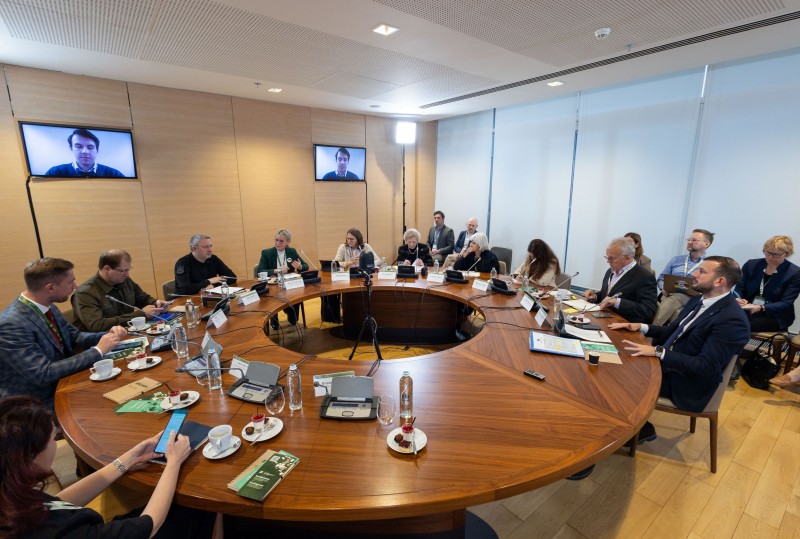 Andriy Kostin stressed the importance of synergy between the points of the Ukrainian Peace Formula of President Volodymyr Zelenskyy regarding the restoration of justice and ecological safety. He also highlighted the significance of continuous cooperation with civil society in implementing the issues discussed during the conference. According to him, it is important to send a signal that no aggressor's crime will go unpunished.
Andriy Kostin stressed the importance of synergy between the points of the Ukrainian Peace Formula of President Volodymyr Zelenskyy regarding the restoration of justice and ecological safety. He also highlighted the significance of continuous cooperation with civil society in implementing the issues discussed during the conference. According to him, it is important to send a signal that no aggressor's crime will go unpunished.
Margot Wallström acknowledged the importance of collaborating with Ukrainian environmental organizations. She said that the work of the International Work Group demonstrates the significant implications of environmental crimes for both our country and the world. She emphasized the importance of drawing the attention of governments, international organizations, and the expert community to environmental issues. Margot Wallström proposed discussing recommendations for improving environmental legislation.


